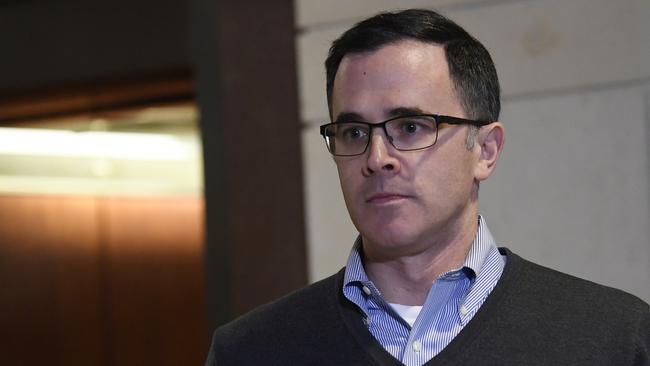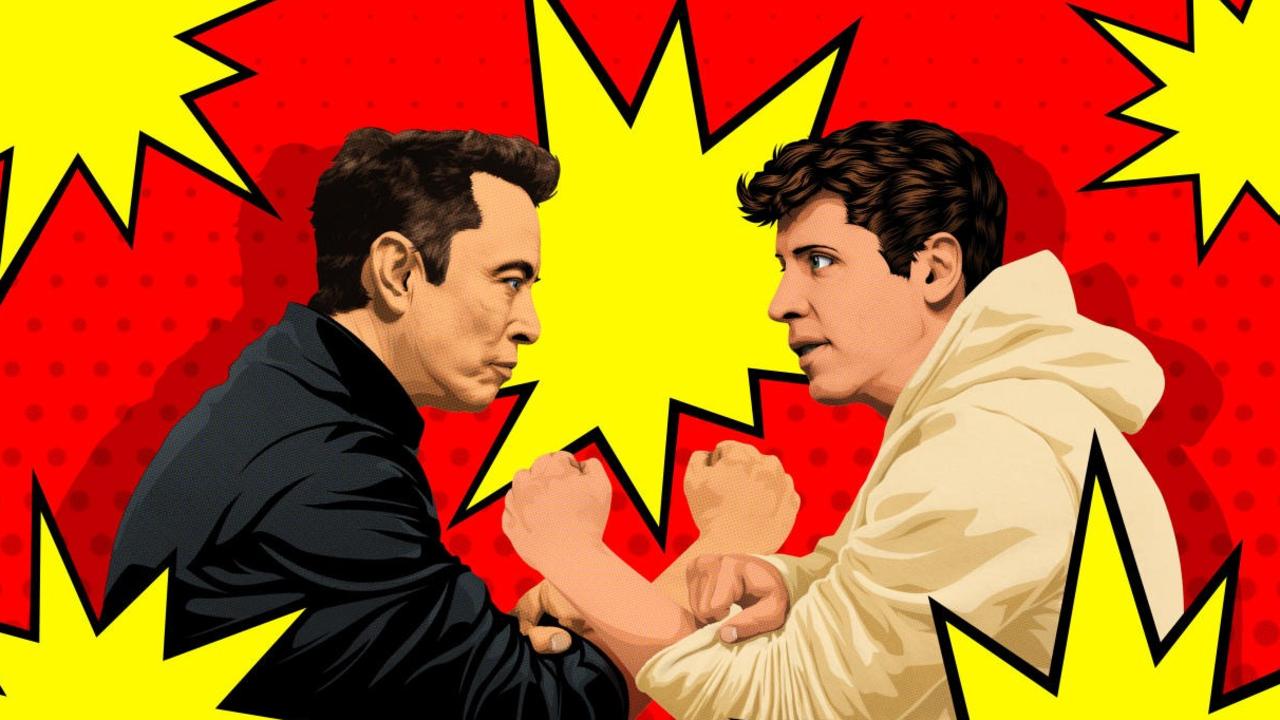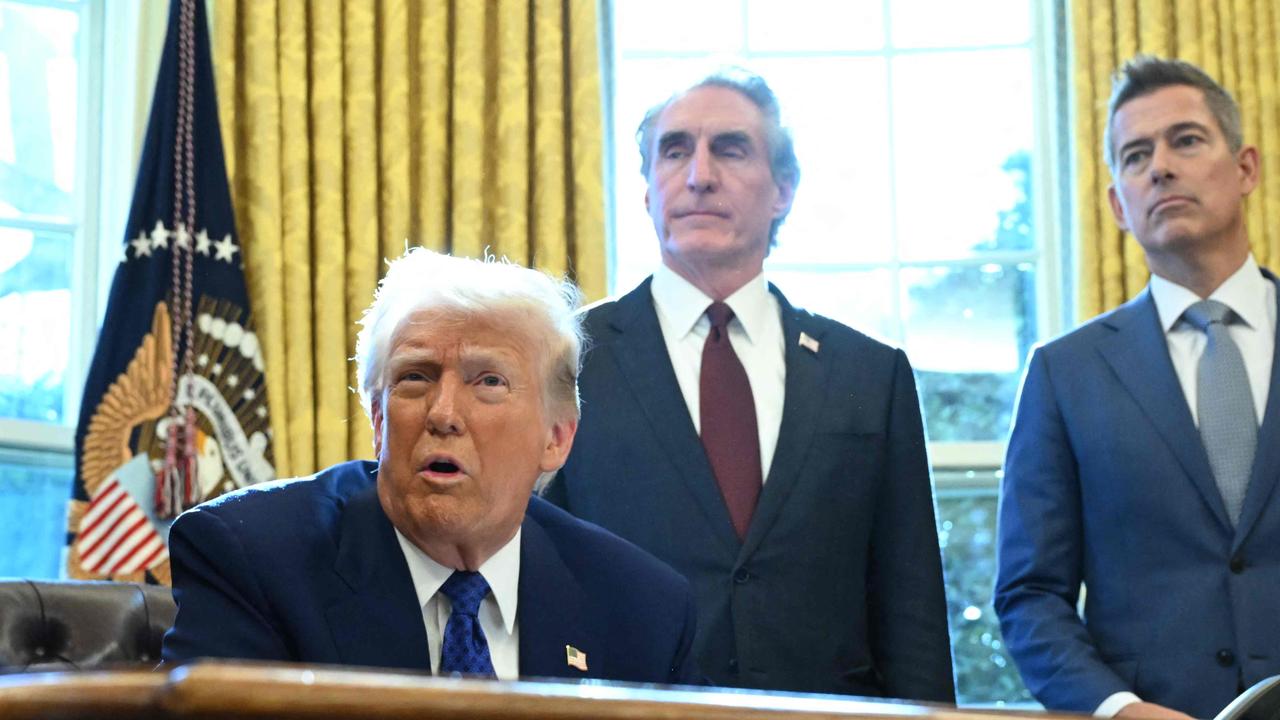White House official feared Trump transcript leak could be damaging
A US official restricted access to the summary of Donald Trump’s Ukraine call because he feared it would damage the president.

A top US official restricted access to the summary of Donald Trump’s Ukraine call that triggered an impeachment probe, fearing it would damage the President, testimony released on Sunday showed.
White House Ukraine expert Timothy Morrison told House of Representative investigators he knew immediately how sensitive the call was when he heard Mr Trump press Ukraine President Volodymyr Zelensky to investigate former Joe Biden.
Mr Morrison said in his October 31 deposition that he had asked National Security Council lawyers to review the call because he thought it would be “damaging” if it leaked.
“I recommended to them that we restrict access to the package … that we did not need quite so many people to have access to the package,” said Mr Morrison, who left the NSC a day before testifying.
The call, which took place on July 25 while the White House was withholding military aid to Ukraine, is central to the impeachment inquiry into Mr Trump.
Democrats leading the probe say the call summary shows Mr Trump abused his office by bullying a vulnerable ally into interfering on his behalf in the 2020 US election. The investigation threatens to make Mr Trump the third president to be impeached, although the Republican-controlled Senate would need to convict him to remove him from office — something it is unlikely to do.
“The testimony released today shows that President Trump’s July 25 phone call with Ukrainian President Zelensky immediately set off alarm bells throughout the White House,” Adam Schiff, the congressman leading the inquiry, said in a statement released jointly with other senior Democrats.
Mr Morrison said, however, the summary had been placed on a highly classified system due to a “mistake” by White House staff — casting doubt on allegations that it was squirrelled away as part of a deliberate cover-up. He also broke with other witnesses who have spoken out against the call, telling house investigators he heard nothing wrong.
Investigators also released testimony from Jennifer Williams, an aide to Vice-President Mike Pence, who said Mr Trump’s push for Ukraine to open investigations was “unusual and inappropriate”. Ms Williams listened in on the July 25 call and said the requests appeared to have been made to further Mr Trump’s “personal political agenda” rather than US foreign policy goals. “I guess for me it shed some light on possible other motivations behind a security assistance hold,” she said.
The depositions were made public as another official arrived on Capitol Hill to answer questions on the White House’s withholding of nearly $US400m in congressionally allocated military aid for Ukraine. Mark Sandy was the first staffer from the White House Office of Management and Budget to testify, rejecting a Trump administration directive not to co-operate. OMB acting director Russell Vought and acting White House chief of staff Mick Mulvaney, who still has the title of OMB director, defied congressional subpoenas to appear.
Previous witnesses have testified that the money was delayed as part of a wider extortion plot to extract a public announcement from Mr Zelensky that Mr Biden was being investigated.
The White House says Mr Trump delayed the cash because of broad concerns over Ukrainian corruption but Mr Mulvaney undermined this defence last month when he said there was indeed a “quid pro quo” of aid for investigations. “That’s why we held up the money,” he said. “Get over it.”
Mr Sandy told investigators he did not know why the assistance was held up but added that he had never seen such a move during his career at the agency, according to The Washington Post.
His deposition caps a blockbuster week on Capitol Hill, in which the house staged the first public hearings in the probe.
On Saturday Marie Yovanovitch, a 33-year diplomatic veteran recalled by Mr Trump, accused the President’s aides of undermining US foreign policy in Ukraine. She testified that she was subjected to a “painful” smear campaign before being abruptly pulled from Kiev.
Mr Trump was accused of witness intimidation, punishable by up to 20 years in a federal prison, after he launched an extraordinary real-time Twitter attack during her testimony.
AFP


